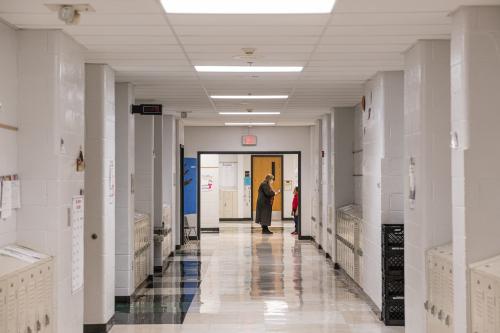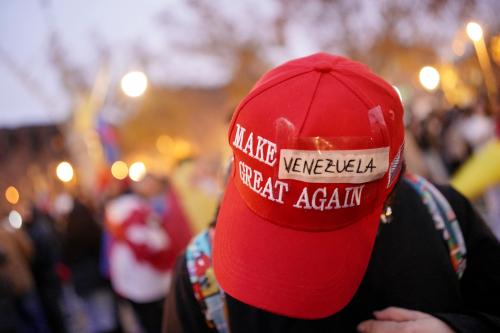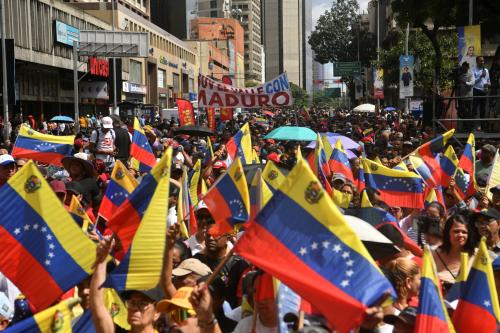Hong Kong’s next vote for Chief Executive (CE)—scheduled for 2017—offers a narrow pathway for improving democratic governance. The question is will a few of Hong Kong’s democratic legislators recognize the opportunity and make the necessary compromises.
As I saw in a trip to the city last week, discussions about reforming the election process are already well underway. Up until now, the CE has always been chosen by a 1200-person selection committee, mostly comprised of members willing to follow China’s lead on major political issues. Now under consideration is a plan to elect the next CE through a one-person, one-vote election (universal suffrage). The number of eligible voters would jump from 1,200 to around 5 million.
The caveat from Beijing has been that the candidates for that election would be selected by a nominating committee to be modelled on—you guessed it—the old selection committee. Pro-democracy politicians have sought a more flexible and open-ended process. It was public opposition to Beijing’s nominating committee that set off the Umbrella Movement protests last September and the 79-day occupation of several downtown thoroughfares. The democrats’ opposition to the current plan is important because the tabled proposal must receive support from two-thirds of the Legislative Council to pass, and the government doesn’t have the votes. It needs four democrats to cross the aisle and vote for the package.
Outsized importance
Hong Kong is a small place (7.25 million people), but what happens to the universal suffrage proposal has rather large implications. I have often thought that how China calibrates its choices concerning Hong Kong’s political system says something about what kind of great power it will be. This is not the defining issue of China’s revival as a great power, to be sure. How Beijing uses its growing power economically, diplomatically, and coercively is more important.
Yet most of the objects of China’s exercise of power, particularly in East Asia, are countries with informed, patriotic populations who care about the security and independence of their countries. (The only real exceptions are the islands of the East and South China Sea whose only inhabitants are seagulls.) So China will have to balance any temptation to promote its interests in more assertive ways with a sensitivity to popular feeling. Indeed, its recent “big country” mentality has caused a backlash in the “small countries” it has tried to bend to its will.
Shifting politics
So Hong Kong should be a good test of China’s sensitivity level. It is constitutionally a part of China. Its population is predominantly ethnic Chinese. The overwhelming majority of people accept their lot as Chinese citizens and would do nothing to upset the status quo. They are inherently pragmatic and understand, most of them, the benefits Hong Kong enjoys by being a part of China, including the rule of law and some political freedoms.
But a significant majority also want genuine electoral democracy. If China had granted that ten years ago, the gratitude would have been profound. But the delay has had deleterious effects. Hong Kong’s politics have become more polarized and radicalized. Political mistrust is deep and moderates have been marginalized, especially in the democratic camp. Meanwhile, the new Chinese leadership is placing greater emphasis on national security, and Beijing’s propaganda organs warn of “foreign forces” (e.g. the United States) working behind the scenes to destabilize Hong Kong.
So far, therefore, the interaction between the Chinese central government and the majority of the Hong Kong public has not gone well as it could have. Things will come to a head in a couple of weeks when the Legislative Council votes on the electoral reform proposal. The democratic camp maintains an apparently strong united front and says it will vote as a bloc against the package, which will mean that Hong Kong reverts to the past “small circle” election of the CE.
During my visit I found a couple of brave souls who believe the game is not over; the dominant mood, however, was one of pessimism. If the package goes down, there will likely be no protests, since radical forces have at least blocked what they hate, even as they didn’t secure what they wanted. If the package passes, however, there will likely be protests akin to those last fall, but not as prolonged. Whatever happens, there will be a big demonstration on or around July 1, the eighteenth anniversary of Hong Kong’s return to China. The size of that rally will be a barometer of the intensity of public feeling.
A “narrow pathway” to success?
There is a curious aspect about the package that Legislative Council will vote on. As I outlined in a Brookings blog post in late April, the proposal actually creates a narrow pathway for the democrats to first nominate and then elect one of their own as CE.
It would require, above all, a willingness on the part of at least four democrats to set aside their dissatisfaction with the undemocratic defects of the current proposal (and they do exist) and focus on the democratic opportunity that it presents. Later on, it would require the democrat camp to unite in supporting a moderate candidate who would not invite Beijing’s automatic rejection and who would have broad public support (and such individuals do exist). It should also have confidence that the majority of voters are on their side and would vote for that candidate. This is not a sure thing. The pro-Beijing members of the nominating committee will have the power not to name that person as a candidate—but rejecting a moderate, popular democrat would put them in a very awkward position.
The independent people that I spoke to in Hong Kong last week agreed with me that the current proposal creates this “narrow pathway.” But they also deplored the reality that the mutual mistrust between the democratic and pro-Beijing camps has become a serious obstacle to a sensible compromise. Radicals dominate the democratic camp. Their influence often constrains moderate democrats who might otherwise vote, as an act of conscience, for the package.
Beijing could have conducted its engagement with the Hong Kong public and the democratic camp in a much more skillful way. The priority it places on control of Hong Kong has outweighed its pledges to institute democracy. That has not changed, and it has contributed to the radicalization of Hong Kong politics. Yet the radicals, who would rather fight than win, are now providing Beijing with a pretext to take no chances.
The Brookings Institution is committed to quality, independence, and impact.
We are supported by a diverse array of funders. In line with our values and policies, each Brookings publication represents the sole views of its author(s).




Commentary
Why Hong Kong’s next election really matters
June 2, 2015